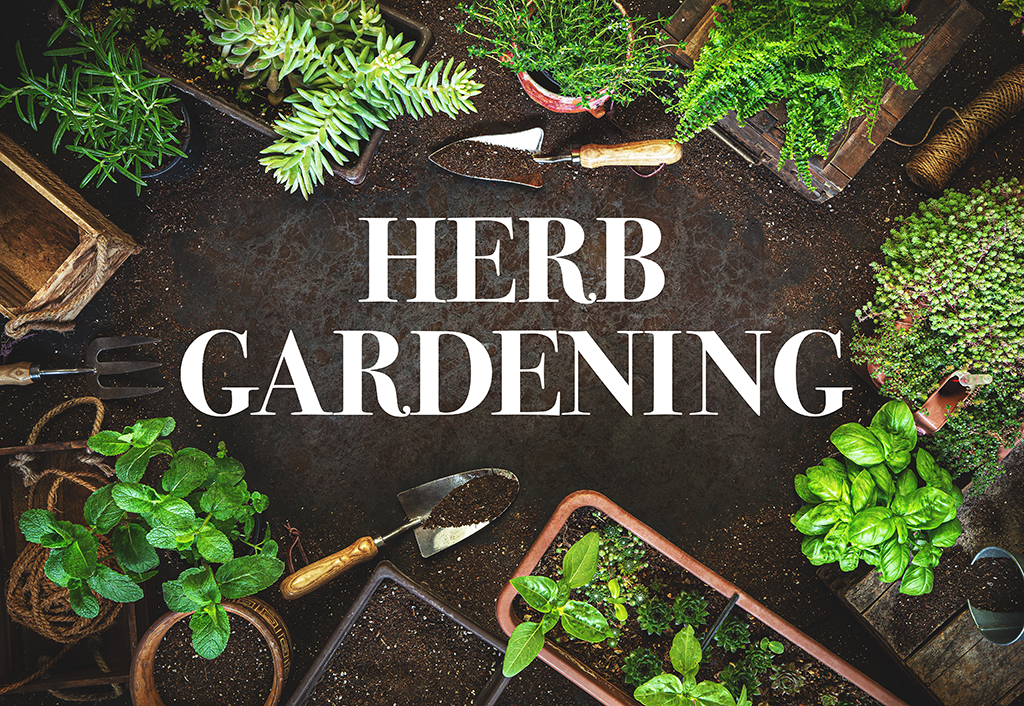Herb Gardening Basic Planting Tips

Herb gardening is relaxing and soothing for soul—it relieves stress and worry. Growing herbs is also very simple and easily accomplished.
Discovering all the wonderful, various herbs and what they do is a captivating pastime, and can be quite beneficial.
Herbs can be used for cooking, as medicinal aids such as topical dressings or healthy teas, or simply for decorative plants in the garden.
Herb Garden Basic Planting Tips
Tip one: Use your favorite cookbook for ideas on which herbs to plant. Often a cookbook devotes a chapter or two to the uses of different herbs as flavorings and accents. Get acquainted with herb gardening by growing herbs you think you'll use. It’s also important to throw in one or two that sound interesting to you. There are so many herb plants to choose from, it can be a bit daunting to the beginning herb gardener, so start there for ideas from your favorite recipes.
Tip two: Start simple with a small, sunny plot, or use a clay pot filled with potting soil to get up and running quickly with a basic herb garden. Herb gardens can range in size from small containers to vast outdoor gardens.
Tip three and four: Two important tips on growing herbs successfully are 3.) make sure the plants get lots of sun, and 4.) provide well-drained soil where the plants can grow to the best of their ability.
Watering about every 2-3 days is usually sufficient, since herbs will not do well in very wet soil.
Most herbs have a preference of full or partial sun, and the seed package or nursery will have this information clearly stated.
Raised garden beds are a good fit for herb gardens. They have excellent drainage and can be easily arranged for proper sunlight.
Tip five: When planting herb seeds, cover them lightly with soil, and don't plant the seeds too deep. A good rule of thumb with herb gardening is “the smaller the seed, the shallower you sow.” If you are using young herb plants already started in growing trays, simply transplant them into your pots or garden bed. Sometimes the plants in the trays are dry; if so, water them first before planting them.
Tip six: Know the difference between annual herbs versus perennial herbs. Annual herbs are herb plants which only grow for one season and then die. Perennial herbs are herb plants which will return the following year. It’s best practice that they are planted separately. This avoids disrupting the perennial plants’ roots when it is time to dig out the dead annuals. It also prevents leaving dead root pieces behind which can contribute to fungus growth.
Grow Your Own Fresh Herbs for Cooking
Cooking with fresh herbs from your garden is a wonderful experience. To get started, here are gardening tips for two well-known herbs that are great for beginning herb gardeners.
Sweet Basil: Sweet basil leaves are good in salads, and are a main flavoring ingredient in tomato dishes such as spaghetti and marinara sauce. In the northern climates, basil is usually grown as an annual plant. In milder climates, sweet basil will return each year on its own, and therefore is considered a perennial plant.
The sweet basil herb is a pleasure to grow because it thrives in average soil, and likes sun or partial shade. Sow the seeds after danger of frost is over, or start them indoors about eight weeks before growing season and then transplant them outside. You can also purchase ready-to-grow starter plants from nurseries and through catalogs.

It's easy to promote the bushiness of the basil plant leaves by pinching and clipping the herb throughout the summer. Use the leaves fresh during the summer growth months, and in the fall, dry the leaves and store them for use during the winter.
Aromatic Garlic: Garlic is full of minerals and nutrients, and is known to have great medicinal properties. It is a staple in every chef's kitchen for cooking dishes from pasta to main dishes. We've all seen garlic bulbs at the grocery store... but did you know that one simple garlic bulb has enough cloves to begin a garden full of garlic plants? Here's what you do.

When spring arrives and the weather has begun to turn warm, prepare a small garden bed in a sunny spot. Take the cloves and place them, pointy side up, in the soil. Plant them in clusters, or rows, and put a light layer of topsoil over them with some compost mixed in. When fall arrives, lift the garlic bulbs out of their bed.
Dry the garlic by slicing the bulbs into thin slices and placing them on a rack at room temperature. You can also store the bulbs by braiding the stalks and hanging the garlic in a dark, cool space. You may also freeze the entire garlic bulb.
Get started with planting your herb garden today by following these quick tips.

My Book is Available on Amazon
Nature Lover's Variety Puzzles and Games: Activity Book for Adults, with Word Searches, Cryptograms, Crosswords, Word Scrambles, Sudoku, Trivia, Coloring, and More is full of nature games and word puzzles.
Are you ready for a fun diversion away from the day-to-day grind? Well now you can have a carefree, enjoyable timestimulating your brain cells and letting your imagination soar…without solving the same boring puzzles. Come into the WORLD OF NATURE with this uplifting puzzle book.
